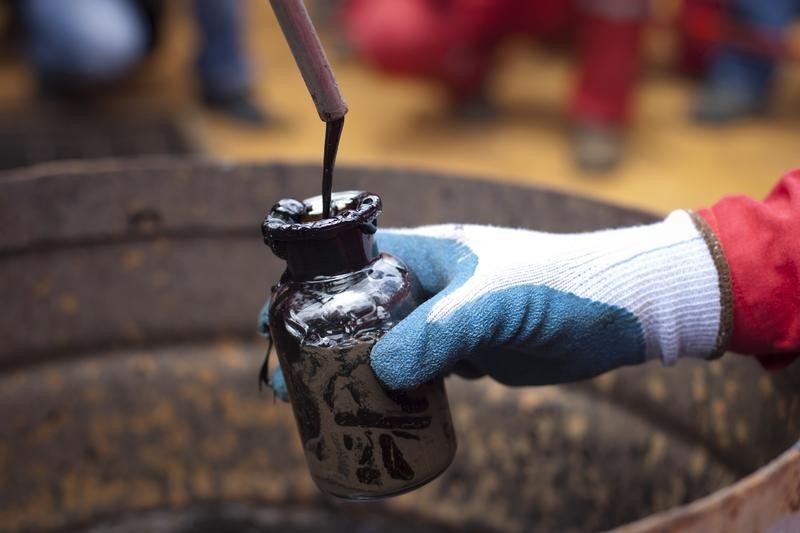By Barani Krishnan
Investing.com - Oil climbed further from last week’s hole, encouraged by potential spending on infrastructure upgrades in America as well as on Saudi Arabia’s move to hike the selling price of its crude to customers in Asia.
West Texas Intermediate, the U.S. crude benchmark, settled up 66 cents, or 0.8%, at $81.93 per barrel. WTI hit seven-year highs above $85 in late October, before tumbling to $78.25 on Thursday.
London-traded Brent crude, the global benchmark for oil, finished up 69 cents, or 0.8%, at $83.43. Brent hit a three-year high of $86.70 late last month, before sinking to around $80 last week.
Oil’s seemingly invincible nine-week rally took a dent over the past two weeks as the White House upped the pressure on producer group OPEC+ to put more barrels on the market and ease prices that have jumped almost 70% this year.
But in recent days, it appeared that the Biden administration might have fewer bullets to fire at the cartel than thought, amid speculation that its only recourse may be to release some of the U.S. strategic supply of petroleum — a situation unlikely to help bring the market down.
“The best path forward for the White House is to negotiate an Iran nuclear deal,” Adam Button, a markets commentator on ForexLive, said, referring to the nuclear deal that could free Tehran from U.S. sanctions and put up to 2 million new barrels on the market.
The Biden administration has resisted doing a quick deal with Iran on concerns that Tehran might not abide by the rules set upon its nuclear program and continued instead on the path of developing atomic weapons as feared by the West.
An Iran deal “might involve a climb down” for the administration, “but it will add barrels to the world market, so long as OPEC doesn't respond by pumping less”, said Button.
Despite the rebound from last week, WTI still has to get to $83.40 to signal another potential leg higher, he added.
Oil prices also rose Monday after Democrats aligned with Biden managed to pass with bipartisan support from Republicans an infrastructure package worth more than $1 trillion to upgrade America’s transportation, broadband and utilities. Democrats’ next challenge is to enact a $1.75 trillion deal on social safety and climate policy.
Saudi Arabia, meanwhile, raised on Friday the price of its benchmark crude for customers in Asia in December, exceeding market expectations.
“Saudi Arabia also reckons that the next few weeks will be tight, this is why its official selling price to Asia was increased by $1.40 a barrel,” Tamas Varga, analyst at PVM Oil Associates, said in a commentary carried by Reuters.
